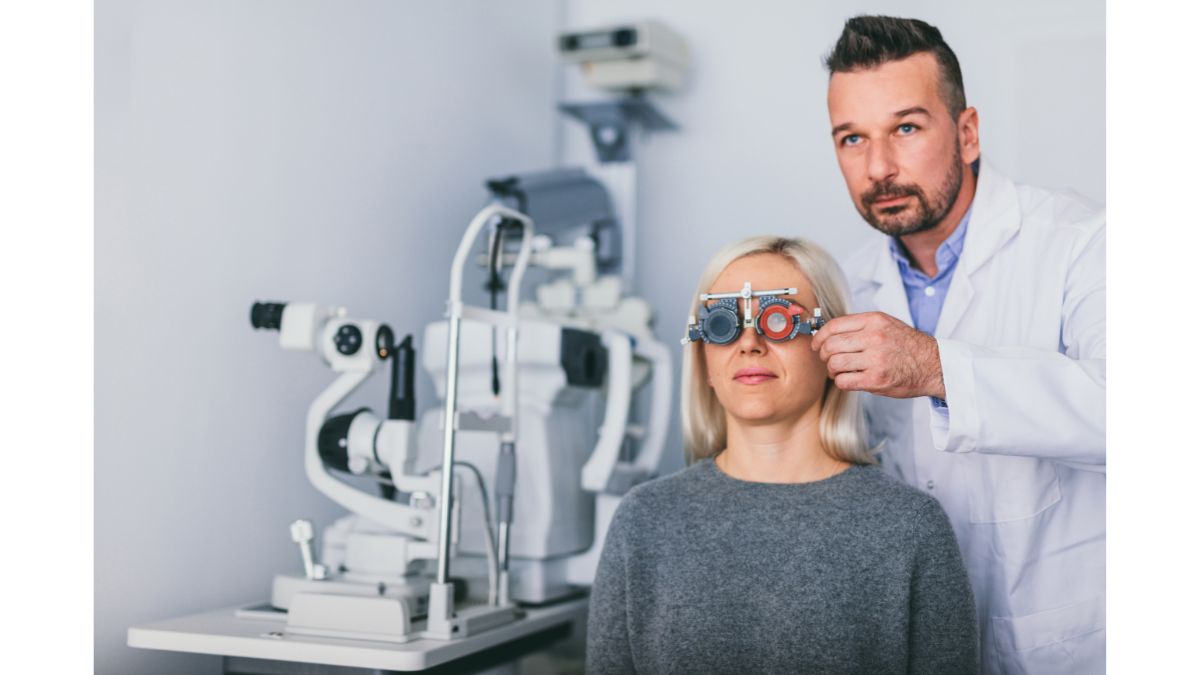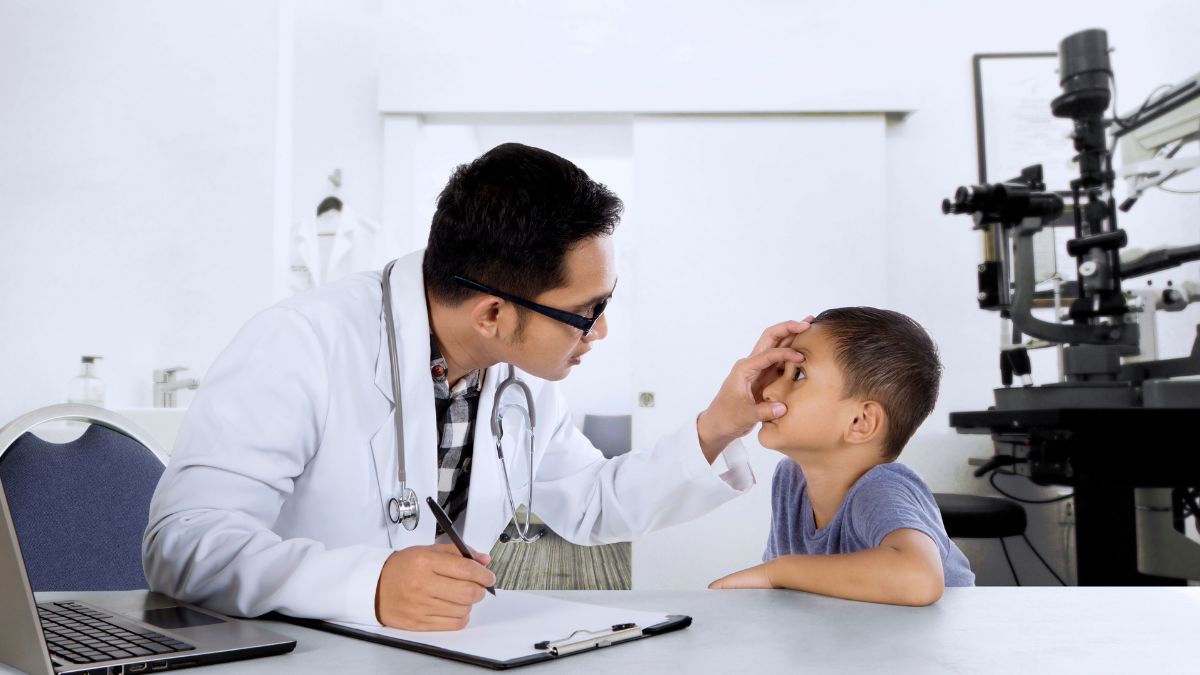- By Prerna Targhotra
- Fri, 13 Oct 2023 11:58 AM (IST)
- Source:JND
Right Time For Eye Checkups: Working on laptops and mobile all day and scrolling through social media has increased the risk of eye problems. Getting an eye checkup or test is an important way to keep your eyes healthy. According to the National Institute of Health (NIH), presently, India is home to approximately 4.95 million individuals living with blindness and 70 million with varying degrees of visual impairment, including 0.24 million children who are blind. Among these, cataracts continue to be the primary cause of blindness, while refractive errors remain the leading cause of visual impairment.
It is extremely important to know when to go for a visual examination as many chronic illnesses such as diabetes, and hypertension, among others can have detrimental effects on eye health. Talking about tests for eyes, Spokesperson, Dr. Sudipto Pakrasi, Chairman, Ophthalmology, Medanta, Gurugram said that it is of utmost importance to raise awareness about the significance of eye care in India. Equally crucial is ensuring that individuals understand when to seek eye screenings.
Watch the video below for the foods that are best for eyes health:
How Often Do You Need To Get Your Eyes Tested
1. Age-Appropriate Timing
Children and Teens should begin with an eye exam at around 6 months of age and then follow up with eye tests at age 3 and just before starting school. For adults (18-60), visit your eye doctor once every two years. Consider annual exams if you wear corrective lenses or have specific concerns. While for seniors (60+), it's advisable to schedule annual eye exams, as age-related eye conditions become more common.
ALSO READ: World Sight Day 2023: Expert Explains Role Of Nutrition In Eye Health | Foods For Better Vision
2. Vision Changes
According to Dr Pakrasi, if you experience any noticeable vision changes, like blurriness, double vision, flashes of light, or eye strain, then you may require immediate attention. These changes may indicate various underlying health issues such as refractive errors and serious conditions like glaucoma or retinal detachment. Therefore, regular eye exams are essential for monitoring eye health and catching problems early.

It is important to get eye checkups on regular intervals (Image Credits: Canva)
3. Existing Eye Conditions
If you have certain existing eye conditions such as glaucoma, diabetes or age-related macular degeneration, then you must keep an extra check on your eyes. Dr Pakrasi suggests that those with a family history of glaucoma should have eye exams every 1 to 2 years. If you've been diagnosed with glaucoma, your doctor may recommend more frequent visits. While for diabetics, ensure annual eye exams to manage potential complications.
4. Contact Lens Wearers
If you wear contact lenses, you may need a different exam schedule. Regular follow-ups with your eye care professional ensure proper lens fit, and comfort, and address any lens-related concerns.
ALSO READ: 5 Everyday Unhealthy Habits That Affect Eyesight And Weaken Vision
5. Occupational Risks
Certain jobs involve prolonged exposure to visual hazards. Discuss your occupation with your eye doctor to determine the necessary exam frequency for safeguarding your eye health.
(Disclaimer: This article is for informational purposes only. It is not a substitute for professional advice, diagnosis or treatment.)

